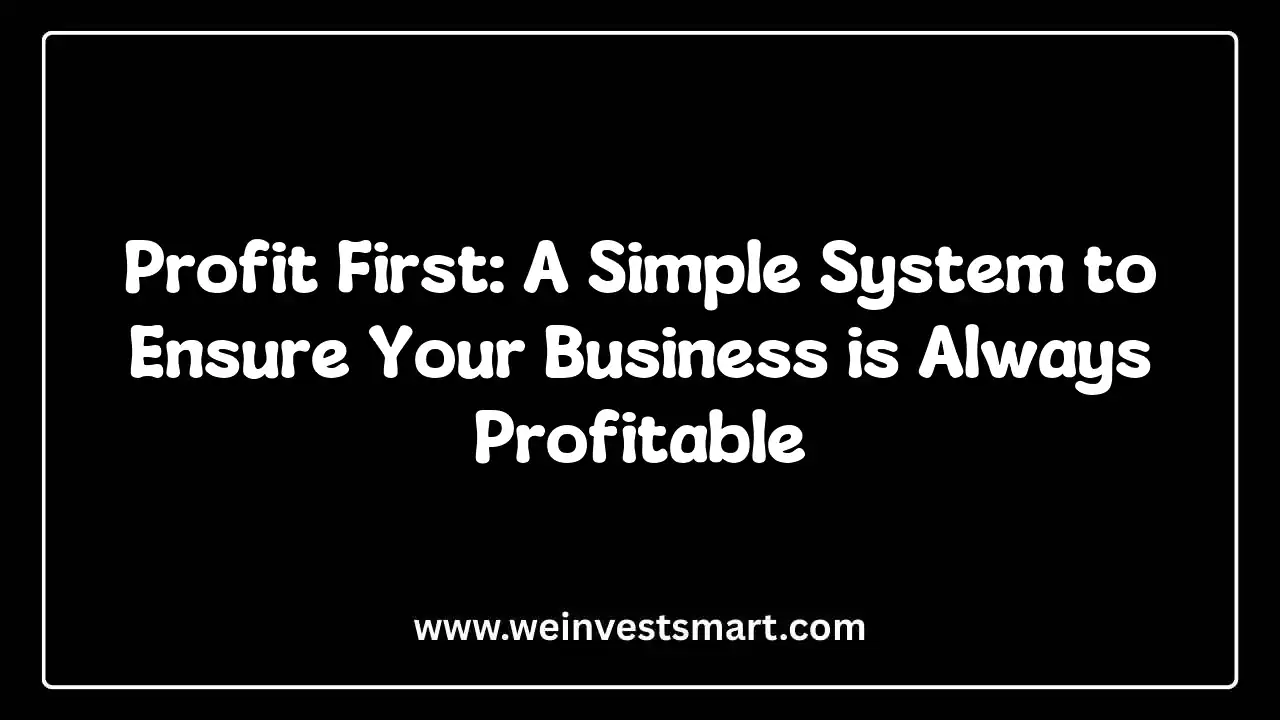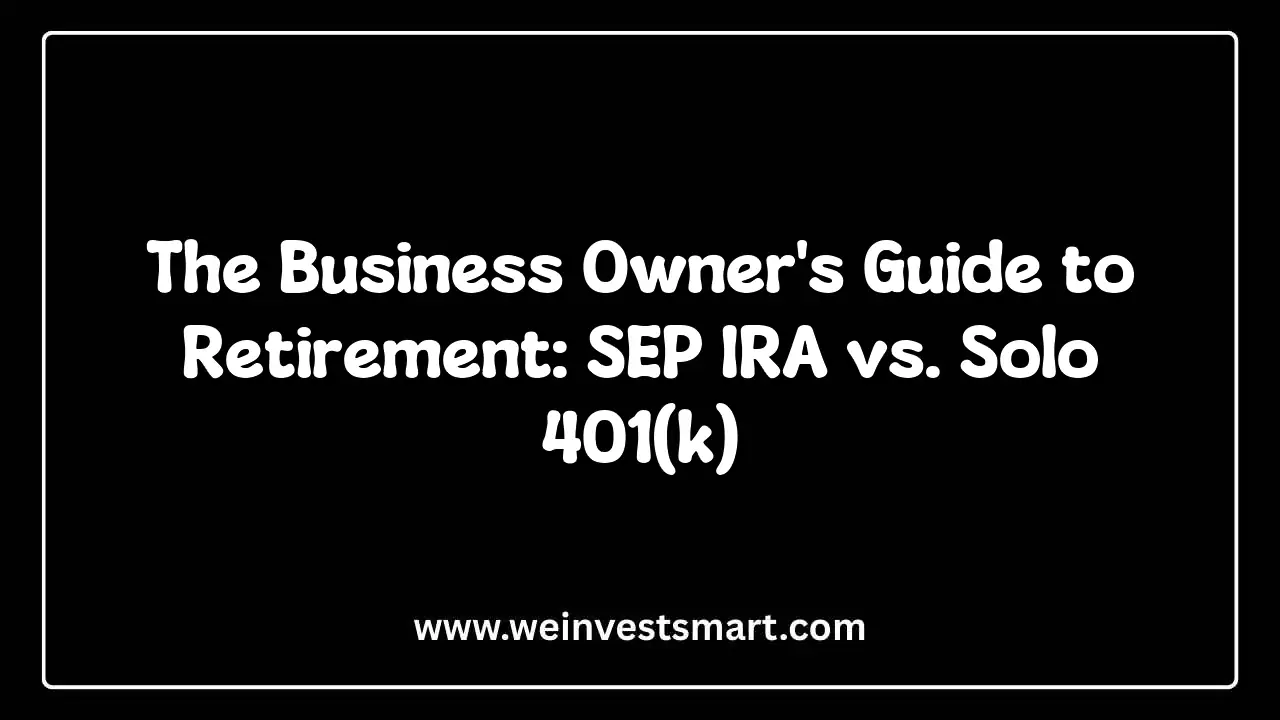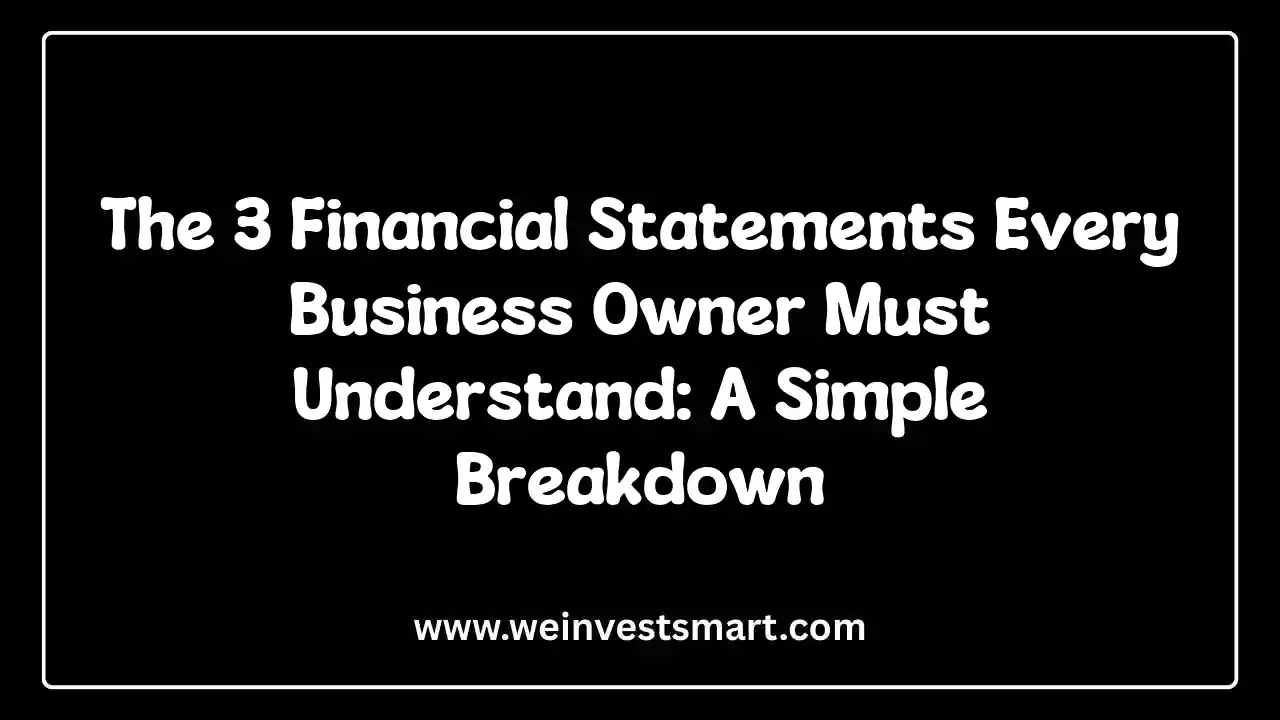· WeInvestSmart Team · business-finance · 11 min read
Sole Proprietorship vs. LLC vs. S-Corp: Choosing the Right Structure for Your Business
A practical guide for freelancers and small business owners explaining the key differences between these common business structures in terms of liability protection, taxation, and administrative complexity.
Most freelancers and small business owners are operating with a level of personal risk they can’t even see. Here’s the uncomfortable truth: if you’re working for yourself and haven’t formally structured your business, you’ve chosen a business structure by default—and it’s the riskiest one of all. You are a sole proprietor, and this means there is absolutely no legal distinction between you and your business. Going straight to the point, if your business gets sued, your personal assets—your car, your savings, even your home—are on the line.
We’re conditioned to think of business structure as boring legal paperwork, a box to check when we get around to it. But what most people don’t know is that this is the single most important decision you’ll make for the financial health and resilience of your enterprise. It dictates how you’re taxed, your level of personal liability, and the administrative burden you’ll carry.
Here’s where things get interesting. Choosing between a Sole Proprietorship, a Limited Liability Company (LLC), and an S-Corporation (S-Corp) isn’t just a legal choice; it’s a strategic one. And this is just a very long way of saying that your business structure is the foundation of your financial fortress. Let’s demystify these options so you can build one that actually protects you.
The Default Danger Zone: Understanding the Sole Proprietorship
Before we explore the alternatives, we need to understand the baseline. What does it mean to be a sole proprietor? In short, if you start freelancing or selling goods and do absolutely nothing to register a business, the government automatically classifies you as a sole proprietor. It’s the path of least resistance, which is precisely what makes it so dangerous.
The main appeal is its simplicity. There are no setup fees, no registration forms, and your taxes are straightforward. You simply report your business income and expenses on a Schedule C form attached to your personal tax return. But this simplicity comes at a staggering cost: unlimited personal liability. Think of it this way: as a sole proprietor, there is no wall between your business self and your personal self. If a client sues your business for a mistake, they are suing you. If your business racks up debt it can’t pay, creditors can come after your personal bank account and assets to settle the score.
From a tax perspective, it’s also brutally simple, but not always efficient. All of your net business profit is subject to both regular income tax and self-employment tax, which is a hefty 15.3% covering Social Security and Medicare contributions. Every dollar of profit gets hit with this tax.
- Who it’s for: The brand-new freelancer testing an idea, the side-hustler with minimal income and almost zero risk. It’s a temporary starting point, not a permanent home.
Building the Wall: The Power of the LLC (Limited Liability Company)
You may also be interested in: Profit First: A Simple System to Ensure Your Business is Always Profitable
This is where you make your first strategic move to protect yourself. An LLC, or Limited Liability Company, is exactly what it sounds like: a formal business structure that limits your personal liability. By filing paperwork with your state, you create a separate legal entity. This is the crucial step. It builds a legal wall—often called the “corporate veil”—between your business and your personal life.
Going straight to the point, if your LLC takes on debt or faces a lawsuit, the claim is against the business’s assets, not your personal assets. A client who slips and falls in your office (or sues for professional negligence) can go after the business bank account, but your personal savings account, your car, and your home are generally safe. This sounds like a trade-off for more complexity, but it’s actually the fundamental price of doing business responsibly. We covet this protection because it allows us to take calculated business risks without betting the farm.
Here’s where things get interesting on the tax front. By default, a single-owner LLC is taxed exactly like a sole proprietorship. The IRS calls this a “disregarded entity,” meaning the business profits and losses “pass through” to your personal tax return, and you still pay self-employment tax on all net profits. So, you get the massive legal benefit of liability protection without changing your tax situation at all. This makes the LLC the most popular choice for serious freelancers and small business owners.
- Who it’s for: The established freelancer, the consultant with valuable contracts, or any small business owner who has assets to protect and wants a more professional standing.
The Tax-Saving Power Move: Enter the S-Corp (S Corporation)
Now, let’s talk about leveling up your tax strategy. But first, we need to clear up a massive point of confusion. The funny thing is, an S-Corp is not a business structure like an LLC. It is a tax classification. To understand this, we need to go to the heart of the problem, which most people don’t know: you can have an LLC that chooses to be taxed as an S-Corp. This is a strategic election you make by filing Form 2553 with the IRS.
Why would you do this? The answer is to save money on self-employment taxes. Remember how with a sole proprietorship or a standard LLC, all of your profits are subject to that 15.3% self-employment tax? The S-Corp election allows you to split your business’s income into two categories:
- A Reasonable Salary: You must pay yourself a “reasonable salary” for the work you do. This salary is subject to normal payroll taxes (the same 15.3% FICA tax, but now it’s split between you and your company as employer/employee).
- Shareholder Distributions: Any remaining profit can be taken out of the business as a distribution, which is not subject to self-employment/payroll taxes.
Let me explain with a concrete example. Imagine your freelance business nets $100,000 in profit.
- As a standard LLC: The full $100,000 is subject to the 15.3% self-employment tax, costing you $15,300 right off the top (before income tax).
- As an LLC taxed as an S-Corp: You determine a “reasonable salary” for your role is $60,000. That $60,000 is subject to payroll taxes ($9,180). The remaining $40,000 in profit can be taken as a distribution, and you pay zero payroll tax on it. The tax savings in this scenario would be $6,120.
You get the gist: the higher your profits, the more significant the potential savings. But what do we do about this “reasonable salary” requirement? The IRS is intentionally vague, stating it should be what similar businesses would pay for the same services. The key is that you can’t pay yourself a ridiculously low salary (like $10,000) and take the rest as a distribution to avoid taxes. That’s a major red flag for an audit.
Of course, this tax advantage comes with increased complexity. Electing S-Corp status means you must run formal payroll, file quarterly payroll tax forms, and file a more complicated business tax return (Form 1120-S). This administrative burden and cost are the trade-offs for the tax savings.
- Who it’s for: Profitable LLC owners (typically with net profits consistently over $60,000-$80,000) where the tax savings justify the added administrative costs and complexity.
The Head-to-Head Showdown: A Practical Comparison
You may also be interested in: The Business Owner’s Guide to Retirement: SEP IRA vs. Solo 401(k)
Let’s break it down side-by-side to make the decision clearer.
You may also be interested in: Managing Business Cash Flow: 7 Tips to Avoid the “Cash Crunch”
| Feature | Sole Proprietorship | Limited Liability Company (LLC) | LLC taxed as S-Corp |
|---|---|---|---|
| Liability Protection | None. Your personal assets are at risk. | Strong. Protects personal assets from business debts and lawsuits. | Strong. Same liability protection as a standard LLC. |
| Taxation | Simple pass-through. All profit is subject to income and self-employment tax. | Default is pass-through, same as a sole proprietorship. Very flexible. | Pass-through, but income is split between salary (payroll taxed) and distributions (not payroll taxed). |
| Self-Employment Tax | Paid on 100% of net profit. | Paid on 100% of net profit (in default status). | Paid only on the “reasonable salary,” not on distributions. |
| Administrative Complexity | Very Low. No setup, simple tax filing. | Low to Moderate. State filing required, annual reports, but manageable. | High. Requires formal payroll, quarterly filings, and more complex tax returns. |
| Best For | Side hustles, new freelancers testing the waters. | Established freelancers and small businesses needing liability protection. | Highly profitable businesses looking to optimize their tax strategy. |
Making the Call: Which Structure is Right for You?
But even though the chart is helpful, we must avoid a one-size-fits-all answer. Your choice should be a direct reflection of your business’s current stage and future ambitions.
The New Freelancer: Start Simple
If you’re just starting out, earning inconsistent income, and have low business risk, there is nothing wrong with operating as a sole proprietor. The goal at this stage is to validate your business idea, not to drown yourself in administrative tasks. Focus on getting clients and generating revenue. You can—and should—evolve your structure as your business grows.
The Established Professional: Get Protected
Once you have consistent income, signed contracts, and are building a real business, it’s time to graduate. Forming an LLC is your non-negotiable next step. It’s a clear signal to clients that you are a professional, and more importantly, it’s the responsible way to protect your personal financial life from your business risks. For a vast number of freelancers and small business owners, the standard LLC is the perfect long-term home.
The High Earner: Optimize for Taxes
When your business is consistently generating significant profit (think north of $60,000-$80,000 a year), that’s when you should sit down with an accountant and run the numbers on an S-Corp election. If the potential tax savings on your distributions are greater than the cost of payroll services and more complex accounting, making the switch is a smart financial move. But don’t jump the gun; the administrative burden is real.
The Bottom Line: This Is More Than Just Paperwork
You may also be interested in: The Essential Guide to Separating Your Business and Personal Finances
Choosing a business structure feels like a daunting, technical decision, but it’s actually a declaration of intent. It’s about how seriously you take your business and how committed you are to protecting what you build. Moving from a sole proprietorship to an LLC is the single most powerful step you can take to separate your identity as an individual from your identity as a business owner.
And this is just a very long way of saying that your business structure is the foundation upon which your professional success and personal security are built. It’s not a static choice—it should evolve as your business does. You get the gist: start simple, protect yourself as you grow, and optimize when the time is right. This progressive approach ensures your legal and tax foundation is always perfectly aligned with where your business is headed.
This article is for educational purposes only and should not be considered personalized legal or financial advice. Consider consulting with an attorney and a certified public accountant (CPA) for guidance specific to your situation.
How to Choose a Business Structure FAQ
What’s the main difference between a sole proprietorship and an LLC?
The primary difference is liability protection. In a sole proprietorship, there is no legal separation between the owner and the business; you are personally liable for all business debts and lawsuits. An LLC creates a separate legal entity, protecting your personal assets (like your house and car) from business liabilities.
Can an LLC be an S-Corp?
Yes. An S-Corp is a tax classification, not a business entity. An LLC can elect to be taxed as an S-Corp by filing Form 2553 with the IRS. This allows the LLC to retain its legal structure and liability protection while gaining potential tax advantages on self-employment taxes.
How much money should I be making to consider an S-Corp?
There’s no magic number, but a general guideline is when your business consistently nets over $60,000-$80,000 in profit. At this point, the potential savings on self-employment taxes may outweigh the added costs and administrative complexity of running payroll and filing more complex tax returns.
What are self-employment taxes?
Self-employment tax is a 15.3% tax that freelancers and small business owners pay on their net earnings. It consists of 12.4% for Social Security and 2.9% for Medicare, covering both the employer and employee portions of FICA taxes.
What is a ‘reasonable salary’ for an S-Corp?
A reasonable salary is what a similar business would pay for the services you provide. The IRS requires S-Corp owners who work in their business to pay themselves a fair wage before taking tax-advantaged distributions. Factors include your experience, duties, and industry standards.



